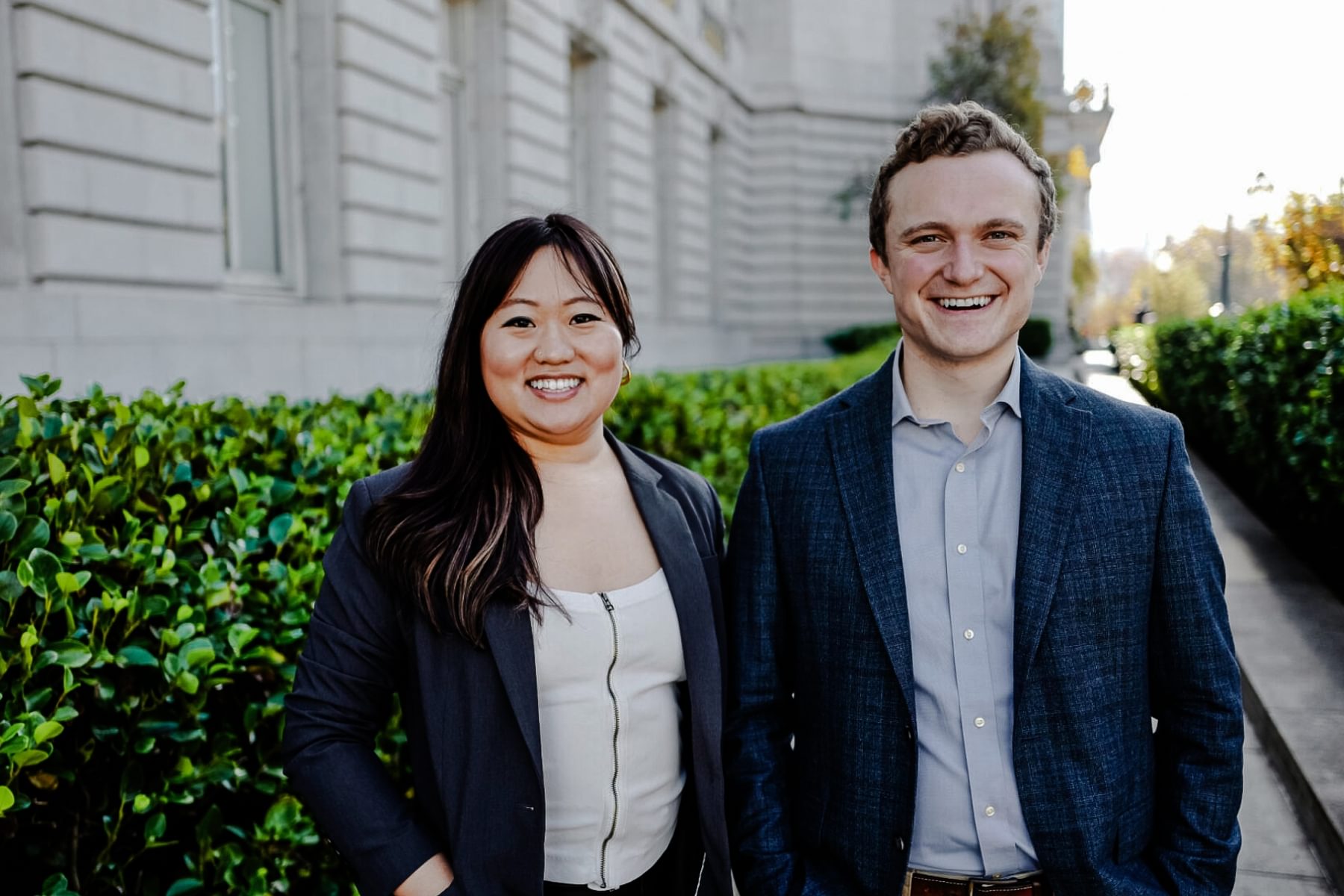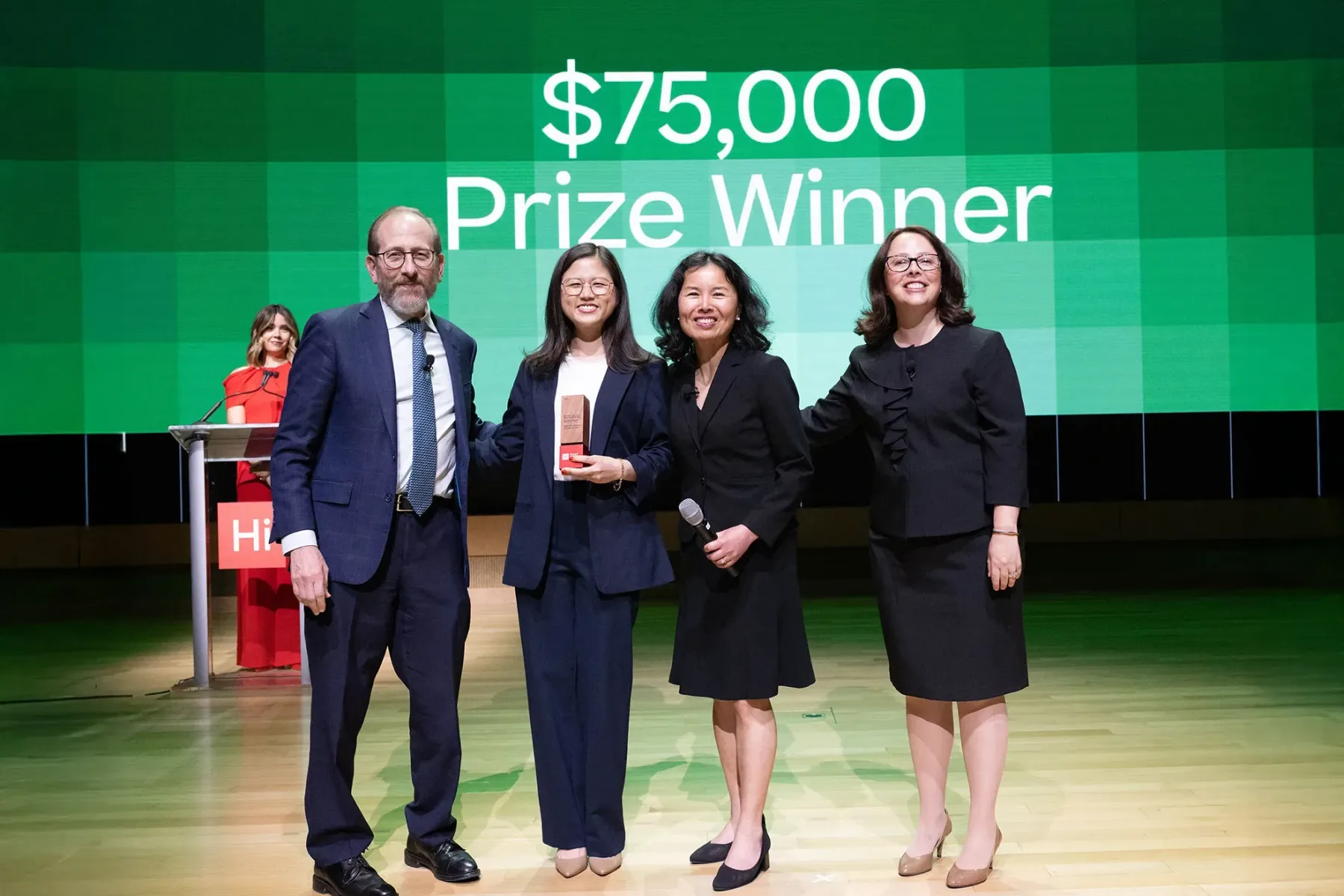This week marks the fourteenth year of Climate Week NYC, one of the world’s largest climate events. In honor of this year’s Climate Week, the Harvard Innovation Labs spoke with many members of the Harvard Climate Entrepreneurs Circle to learn more about their accomplishments over the last year.
In 2021, the Harvard Innovation Labs partnered with HBS’s Business and Environment Initiative (BEI) and Harvard Alumni for Climate and the Environment to launch the Harvard Climate Entrepreneurs Circle. This incubation program for high-potential ventures working to address climate change offers access to world-class 1:1 coaching, pro bono legal counsel, connections to industry leaders, and a peer group of ventures focused on innovative solutions to tackle climate change.
Over the last two years, the Harvard Climate Entrepreneurs Circle has incubated more than 40 ventures. Here are some of the extraordinary ways they are tackling climate challenges.
- Earth Warriors (Keya Lamba, HGSE ‘20) is one of the world’s first organizations to provide a climate education curriculum for three-to-11-year-olds, using a positive and empowering approach. In 2022, Earth Warriors was recognized as a UNESCO Green Citizens Initiative and successfully launched its school curriculum in six different countries. The organization also trained over 500 teachers from 12 different countries on the basics of teaching high-quality climate education, and ran a global poetry competition with Earthday.org with over 1,000 student entries from around the world.
- Metafin (Sandeep Chopra, HBS ‘12) is transforming the lives of over 1.4 million smallholder farmers in rural India. The company has financed more than 350 rural micro-enterprises, through a network of 100+ qualified installers, to help replace diesel and intermittent grid power with a clean energy alternative. Metafin’s project-led approach to solar lending is resulting in increased energy and financial inclusion, a better quality of life for farmers, and reversal of climate change at the same time. The company has partnered with the International Finance Corporation for an early-stage engagement as well as the Global Energy Alliance for People and Planet (a partnership between Rockefeller Foundation, Bezos Earth Fund, and IKEA Foundation) to expand energy inclusion in rural India.
- Metric (Megan Murday, HBS ‘21) measures, benchmarks, and improves ESG performance for startups and VC firms. The venture-backed team has launched a freemium product that allows startups to measure carbon and corporate diversity for free in less than 20 minutes. VCs can access data and benchmarks for $50 per portfolio company. A 2022 President’s Innovation Challenge Finalist, Metric also is an HBS case study for Entrepreneurial Marketing and a member of the Harvard Launch Lab X GEO cohort.
- MyGug (Elsa O Riain, College 2007) is a micro-scale digester that uses the natural process of anaerobic digestion to convert food waste into biogas for cooking and a liquid bio-fertilizer. Over the last year, MyGug has sold units to Ireland, the U.K., and Germany. The company has also been awarded Local Enterprise Office (LEO) Grant funding from the Irish government.
- The Physis Platform (Stefania Di Bartolomeo, HES ‘19) helps sustainable investors that are serious about building and promoting impact investing. Physis has been recognized as one of the Top 5 Women-led Fintech companies by Visa, a Top 10 Emerging Fintech Companies by Morningstar, Future of Fintech by OneValley, and “Best Institutional Investor B2B SaaS Company” by Wealth & Finance International.
- Quino Energy (Eugene Beh, College ‘09) provides low-cost, long-lasting, and fire-safe grid energy storage with its water-based quinone flow battery technology licensed from Harvard. Over the past year, Quino Energy has been awarded a $4.6 million contract from the Department of Energy for scaleup, raised $1 million in funding, and welcomed its first employee in August. The company was also selected for the Berkeley Haas Cleantech to Market program and the Rice Alliance Clean Energy Accelerator. In September 2022, Quino Energy won one of the “Most Promising Company” awards at the 19th Annual Energy Tech Venture Forum held in Houston.
- RockFix (Melissa Zhang HKS ’23) is sequestering carbon permanently and advancing green mineral extraction by unlocking the value of mine waste. In 2022, RockFix opened its lab in the Bay Area and raised grant funding from multiple foundations, universities, and government agencies, including the New York State Energy Research and Development Agency (NYSERDA) and Stanford University. RockFix was selected as one of 10 startups among 220+ applicants into NYSERDA’s Venture for ClimateTech accelerator, named a finalist in the Colorado Cleantech Industry Association’s Mining Challenge, and was one of three winners of the Stanford TomKat Solutions Award.
- Sagewell (Pasi Miettinen, HBS ‘00) has had 1.4 million customer participation days in its Bring Your Own Car (BYOC) electric vehicle peak load reduction program. The BYOC program performed incredibly well in California during the nine consecutive days of near power outages in September by having 98% of participating EVs charge outside of the peak consumption hour each day. This success saved money for California utilities and their customers, and lowered emissions from peak hours. Sagewell’s utility smart meter data analytics software continues to find maximum carbon emissions reduction opportunities and benefits for utility companies and their customers.
- SubjectToClimate (StC) (Margaret Wang, HGSE ’21 & David Jaffe ALI ‘20) is a nonprofit online connector for K-12 educators of all subjects to find credible and engaging materials on climate change at no cost. Shortly after the platform launched in 2021, StC joined the New Jersey Climate Change Education Initiative to create the state’s go-to hub for climate change education resources. In 2022, StC was named a finalist in the Keeling Curve, which identifies the best climate solutions the world has to offer. For the upcoming school year, StC is releasing more features (such as a professional learning database and an interactive help center through a partnership with MIT Climate Portal) and exhibiting at California’s Environmental and Climate Change Literacy Project’s relaunch event.
- TerraStor (Matthew Ciardiello, College ‘04) enables electrical grids to achieve 100% renewable penetration by developing grid-scale, long-duration energy storage systems. Since early 2022, TerraStor raised pre-seed capital, expanded its team and advisory board, and was accepted into the 2022 Decarbonize accelerator program (run by StartupBootCamp and affiliated with strategic corporates Mitsubishi and NYK Line).
- ThermoTerra (Jeremy Rutman, College ‘94) is completing its second full-scale passive humidity-powered HVAC installation in cooperation with Ben Gurion University in Israel’s Negev desert, with a dedicated team of hardware and software experts. With record heat waves in summer and winter’s approach coinciding with an energy crunch in Europe and elsewhere, ThermoTerra is in working to keep things temperate.
- XCharge Energy (Aatish Patel, HES ‘22) is redefining how we understand and approach EV charging and energy storage solutions with hardware designed specifically for the U.S. electrical grid. XCharge Energy deployed their first 208Vac native DC Fast Charger in Tinley Park, Illinois, where they were the first company to achieve outputs of its kind on 208Vac 3-phase architecture without additional energy storage. XCharge Energy was also a semi-finalist in the 2022 President’s Innovation Challenge.





